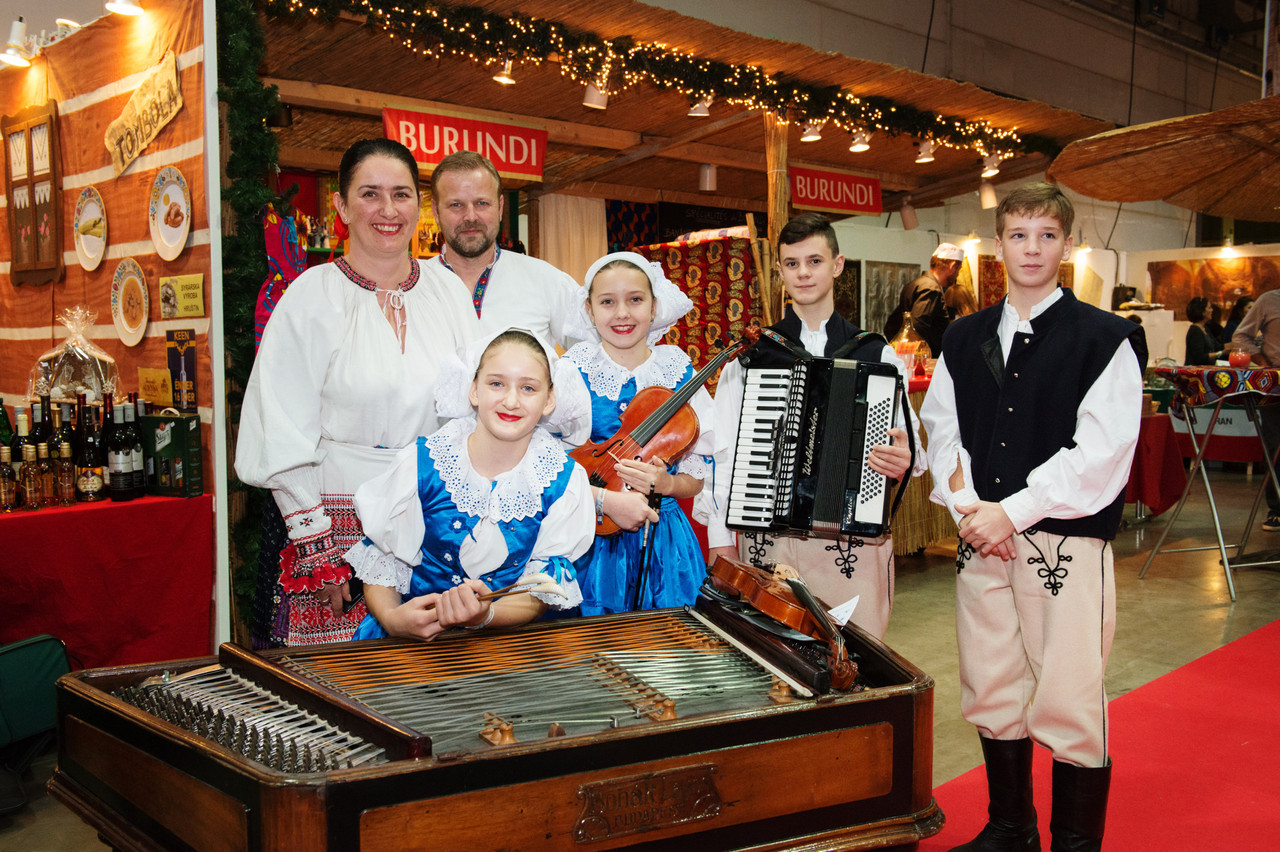The Bazar International is one of the highlights in the diary of Luxembourg’s international community, raising more than €500,000 every year for different charitable organisations. Because of pandemic restrictions in 2020, the bazaar couldn’t take place. While it is back this year, it is best to come prepared.
The bazaar opens already on Friday 26 November from 6-9pm at Luxexpo, adding a preview evening to its line-up. It continues on Saturday from 10am to 6pm and on Sunday from 11am to 6pm. Grand Duchess Maria Teresa is due to official open the fair on Saturday.
“The bazaar weekend really is a culmination of thousands of hours of preparation. To me it is always an emotional moment, once we are open and everything is running smoothly, to see these different nationalities, different cultures, different religions, all working together to raise money for charities,” said Carmen Decalf, president of the Bazar International in a statement. “It’s that sense of solidarity that makes the Bazar International so unique.”
Free tickets should be for three-hour time slots as the number of people allowed inside the venue is limited. Organisers hope to manage traffic with this system. Tickets are available on site but cost €3, which will go to charity, with no guarantee that open spaces are available at the time of arrival.
The event takes place under the CovidCheck regime meaning visitors must be able to present a valid vaccination, recovery or test certificate at the entrance. Visitors are encouraged to wear their masks throughout the event except when eating or drinking, even though this isn’t mandatory under CovidCheck.
Support needed now more than ever
The line-up of stands is somewhat slimmer this year, but more than 40 booths await with delicacies and goodies from Argentina and Australia to India, Ireland, Spain and South Africa. The popular second-hand book stand is also back, as is a flea market.
The German baking stand is among the victims of the pandemic and visitors will also sadly miss out on Peru’s excellent pisco sours, Iran’s tasty rice dishes and Cyprus’ sweet desserts.
Stands usually take around six to nine months to organise their participation. This year, there were just three months of preparation. “We have had to cut costs as we are dealing with a maximum number of visitors that is lower than we are used to, thus likely resulting in less income for this year’s charities,” Decalf said. “However, we are confident that visitors will find themselves once again in the merry and fun atmosphere that they know so well.”
Charities active in 39 different countries will receive funds from this year’s proceeds, supporting projects in areas such as education, health, support for persons with disabilities, access to clear water and environmental protection.
“Everything we do, every decision we make is with the charities in our minds and raising money for them. It is our aim, after all, to contribute to fight poverty throughout the world,” said Decalf. “Priority is given to empowering children and women through safety, education, vocational training and medical care.”
Support is needed now more than ever. “The pandemic has been terrible for many, but imagine how the pandemic has affected charitable work across the globe? Most charities we’re in contact with have seen a steep decline in funding and have difficulty to get even the most basic needs.”
